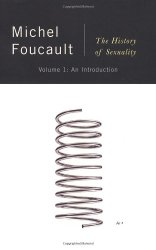I was recently contacted by a student who was writing a paper about ‘sexual addiction’. As a counsellor and therapist in private practice, I’m not usually in a position to offer so much assistance to students. But in this case the theme of his particular course – Healthy Sexuality – made me curious.
Sexual Addiction and ‘Healthiness’
To date there has not been so much written about the idea of sexual addiction from a narrative therapy perspective. When I saw the course title, what immediately struck me was the lens of healthiness through which the course was judging sexuality. I know this is a very common way to consider sexuality because I hear it all the time. And I began my career working in the field of sexuality as a ‘health educator‘. At that time public dialogue about sex was largely taboo. Health (and specifically HIV) provided an entry point to talk more openly. The rules were that our sex talk had to be the interests of public health. We put the emphasis on ‘healthy sexuality’.
When people consult me about sex addiction, they are often judging their sex as ‘unhealthy’. These days the concept of healthy sexuality has become such a norm it is a cliche. Particularly since the onset of AIDS, public health authorities have made ‘healthiness’ the primary lens through which we consider sexuality. We assume that sex and sexuality must be ‘healthy’ first and foremost. I am curious about the division that is made between ‘healthy’ and ‘unhealthy’ sexuality. How useful is this binary? And who determines what is ‘healthy’ and what is not?

It also has me wondering about what happened to other perspectives or lenses through which we might view sexuality. What does sexuality look like, for instance, through a lens of Pleasure? Or a lens of Community? The lens of Power? Or Spirituality? Or – dare I say it – ‘Fun’?! What does your sexuality look like if you view it through those lenses instead? Or how about through the lens of Self-Knowledge, finding out about yourself?
Exploring Healthy Sexuality and Alternatives to ‘Addiction’
When we start looking at sexuality through a lens of ‘healthiness’ we might also be standing firmly within the disease model. It’s no wonder fears about addiction figure so strongly when we are viewing ourselves with the presumption of a deficiency or possible health disorder. We lose the context. In the stories I hear, people tell me about the steps they are taking in exploring desire. They have started to address urges they have had for 30 years but avoided due to shame or fear of ridicule.
Others tell me about strategies of using pornography for stress relief, or to relieve boredom. Sometimes they use pornography to escape from grief that has overwhelmed them. Some people tell me how good they feel when they have sex. They say they can’t share this with others because of taboos around discussing sex. I am interested in the courage, skills and abilities of those who consult with me and we draw on all of these in our work together.

In his book series The History of Sexuality, the French philosopher Michel Foucault claims that the concept of Sexuality was developed to ensure power remained with certain people. Society proscribes certain sexualities as disordered or pathological or unhealthy. Authorities decide other sexualities are healthy.
In narrative therapy there is an idea that people can be experts in their own lives. This certainly challenges the medical model supporting doctors, psychologists and psychotherapists as the experts. It is a way of thinking I personally find exciting and empowering. If you want to discuss healthy sexuality and your own circumstances contact me to make an appointment.

